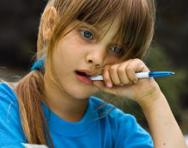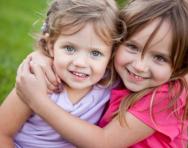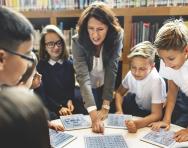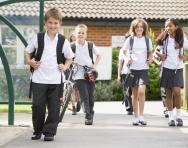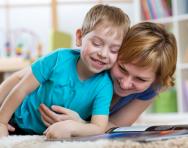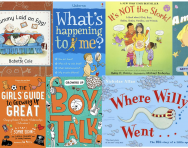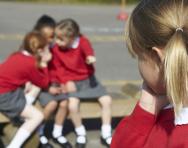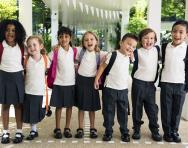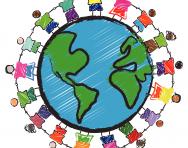Key Stage 1 PSHE explained
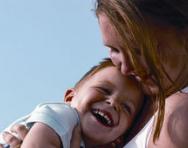
We all want our children to be healthy and happy, at school and in their wider lives. As parents and carers, we’re their most important influence as they grow and change, but schools also have a part to play.
PSHE (personal, social, health and economic education) lessons are just one way in which schools help children develop as well-rounded individuals.
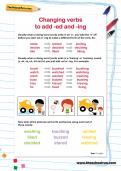
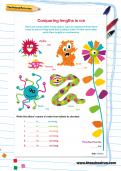
Start the Year 1 Learning Programme!
- Weekly maths & English worksheets direct to your inbox
- Follows the National Curriculum
- Keeps your child's learning on track
Key Stage 1 PSHE covers topics such as basic skills for staying healthy and safe and for behaving well.
Children are given opportunities to show they can take some responsibility for themselves and their environment.
They begin to learn about their own and other people's feelings and become aware of the views, needs and rights of others.
They learn social skills such as how to share, take turns, play, help others, resolve simple arguments and resist bullying.
The PSHE curriculum
Although the Department for Education makes it clear that all schools should provide PSHE, the subject is non-statutory. This means that while schools must teach it, they’re free to do so in any way they like.
Many schools are guided by the PSHE Association, which – with government funding – has devised its own PSHE curriculum.
There are three core areas, each of which encompasses a range of teaching points.
PSHE theme 1: Health and Wellbeing
The PSHE Association advises that children should be taught:
- What constitutes a healthy lifestyle, including the benefits of physical activity, rest, a healthy diet and dental health, and how to maintain it.
- To recognise what they like and dislike.
- To make informed choices that improve their physical and emotional health, and to understand that choices can have good and bad consequences.
- To think about themselves, learn from their experiences, recognise and celebrate their strengths, and set themselves simple but challenging goals.
- To recognise positive and negative feelings, develop a vocabulary to talk about their feelings, and master simple strategies for managing their feelings.
- About change and loss, such as moving home and losing toys, pets or friends, and the associated feelings.
- The importance of personal hygiene and how to maintain it.
- How some diseases are spread and can be controlled; the responsibilities they have for their own health and others’; simple skills to prevent diseases from spreading.
- How we grow from young to old, and how people’s needs change.
- About growing and changing and new opportunities and responsibilities that come with increasing independence.
- The names for the main parts of the body, including genitalia, and the physical similarities and differences between boys and girls.
- That household products, including medicines, can be harmful if not used properly.
- How to keep physically and emotionally safe, including online, on roads, when cycling and around railways, water and fire.
- About people who look after them, their family networks, who to go to if they’re worried, and how to attract their attention.
- About how they can help the people who look after them to protect them more easily.
- To recognise that they share a responsibility for keeping themselves and others safe, know when to say ‘yes,’ ‘no,’ ‘I’ll ask’ and ‘I’ll tell,’ and know that they don’t have to keep secrets/
- About privacy, their right to keep things private, and the importance of respecting others’ privacy.
PSHE theme 2: Relationships
This area of PSHE covers:
- How to communicate their feelings to others, and recognise and respond to how others show their feelings.
- How their behaviour can affect others.
- The difference between secrets and nice surprises, and the importance of not keeping secrets that make them feel uncomfortable, afraid or anxious.
- Recognising what is fair and unfair, kind and unkind, and right and wrong.
- How to share and explain their opinions on things that matter to them to individuals and the whole class.
- How to listen to others, and play and work cooperatively, including resolving simple disagreements through negotiation.
- Giving others constructive support and feedback.
- Identifying and respecting the differences and similarities between people.
- Identifying their ‘special people’ such as family, friends and carers, what makes them special, and how they should care for each other.
- Physical contact: what is acceptable, unacceptable, comfortable and uncomfortable, and how to respond including who to tell and how to tell them.
- How bodies and feelings can be hurt.
- Recognising when people are being unkind to them or others, and how to respond.
- Recognising different types of teasing and bullying, and understanding that these are unacceptable.
- How to resist teasing and bullying, and get help if they experience or witness it.
PSHE theme 3: Living in the Wider World
This core part of PSHE includes:
- How they can contribute in the classroom and to school life.
- How to construct and follow group, class and school rules, and how these rules help them.
- Recognising that people and other living things have rights, and that everyone has responsibility to protect these rights.
- Understanding that they belong to different groups and communities, such as family and school.
- What improves and harms their local, natural and built environments, and how to look after them, including conserving energy.
- Understanding that money comes from different sources, and can be used for different purposes, including spending and saving.
- Understanding the part money plays in their lives, including how to keep it safe, making choices about spending or saving, and what influences our choices.
- That we are all unique.
- That we all have similarities with other people, and what we have in common.
- The ‘special people’ who work in the community and how they protect them, including how to dial 999 in an emergency.
How PSHE might be taught in primary school
In Key Stage 1, PSHE will be taught in specific lessons, as part of the wider curriculum, and through the activities that are part of school life, such as assemblies and circle time.
Some example activities include:
- Role-playing being in an emergency situation, acting out the dangers and pretending to dial 999 for the fire brigade or an ambulance.
- Working in small groups, and assigning roles to the members, such as chairperson and scribe. They’re given a piece of playground equipment (e.g. a hoop or skipping rope) and have to work together to give another group instructions about how to use it, such as: what is this for? How many people can play with it at a time? What are the safety rules for playing with this? They report back to the class, sharing their findings, as well as considering the group processes, e.g. did everybody listen to each other? How did they agree questions in their group?
- The teacher using puppets to stage a situation in which Rabbit is being picked on by Tiger (a bully). She shows that Rabbit was upset on many occasions during the scene. She then asks the pupils to retell what had happened in their own words and describe how the characters felt, presenting this information in a speech bubble. At the end of the lesson, the pupils discuss what they would do if they were in Rabbit's situation at school.
- A dental nurse visiting the class and talking about dental hygiene, including how to brush your teeth, and the foods and drinks that are good and bad for teeth. Children can share their own knowledge and ask questions.

Give your child a headstart
- FREE articles & expert information
- FREE resources & activities
- FREE homework help
